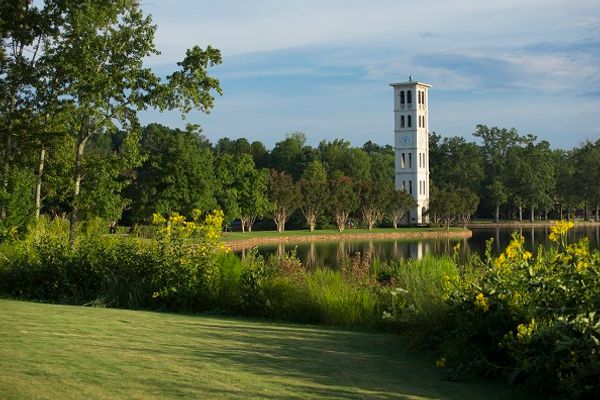Furman claims to offer a liberal arts education, one that “develops the whole person - intellectually, physically, socially, emotionally, and spiritually.”
This year, that has perhaps been a more difficult task than ever. COVID-19 has led to a near complete transformation of campus life, uprooting many of the essential elements of a liberal education. It is difficult to host in-person classes and facilitate fruitful group discussions. Students have lost access to common spaces where they once gathered in community. Our public square is far from crowded.
Though disappointing, this is no cause for despair. In fact, we might allow this crisis to sharpen our focus on the things that really matter, just as other crises have done for great thinkers throughout history.
In that spirit, then, it should be said that the real challenge confronting liberal education at Furman is more fundamental and persistent than COVID-19. At heart, that challenge is one of self-definition. We claim to be a liberal arts school in our brochure, but what does that mean to us in practice? That is a question that thoughtful members of our community have struggled with long-before COVID-19 and one that I hope they will continue to address. For now, in my opinion, our answer falls short.
Furman does get some things right about liberal education. Our residential community, small classes, and student-professor relationships lay a strong foundation not only for acquiring knowledge but for gaining wisdom. Furman also enjoys an increasingly diverse student body, which has the potential to serve as a fertile field for the good-spirited disagreements necessary for liberal education. What’s more, our student body is not only diverse, but engaged. Paladins tend to be seriously involved in at least one student organization.
At their best, these organizations funnel student energy into reflective and constructive activities that lead to practical, community-facing projects for positive change. Unfortunately, however, many on-campus organizations are failing to fulfill this important role. This is because, broadly speaking, Furman knows what liberal education requires but often fails to communicate what it is. We have all the ingredients, but often our chefs are not all on the same page about what we are making. As a senior, I feel confident saying that many members of the student body seem blissfully unaware of the transformational process of “liberal education” that they have supposedly been engaged in.
Of course, the environment on campus is capable of affecting students to a surprising extent, habituating them into virtue without their knowing. But ultimately, liberal education is about creating perceptive people that are capable of contemplation and choice. How can we claim to be fulfilling our mission if so many students are not aware of what liberal education is and even fewer are consciously choosing to participate in it?
We cannot. We can, however, more consciously communicate our commitment to liberal education. In practice, this sort of effort could take many forms. But no matter what form it takes, I think it will require our community to do two things that it may be somewhat uncomfortable with.
First, we need to abandon the “playground” mentality, which posits that campus is a place where students are first and foremost meant to live comfortable, easy lives. This approach encourages an ever-expanding array of resources and amenities for students, but it neglects to give them any direction about how to choose a good path. It would rather students be comfortable than curious. It would rather students be entertained than innovative.
Secondly, Furman needs to stop trying to be something it's not. Furman is a small, regional liberal arts school in the South. That is our identity, and we should own it. When we do not own our identity as a Southern regional school, it seems to me that we also tend to move further away from offering a truly liberal education. In expanding our ambition, we actually dilute our aims. That is not to say that we should stop recruiting international students or seeking people from all walks of life. But, I am suggesting that South Carolina — and the South more broadly — are our home and they have a lot to offer that we are not taking full advantage of. That includes immense racial and socioeconomic diversity, a rich history full of lessons and warnings for students today, and a profound sense of rootedness. Diversity, history, and rootedness are all key aspects of a liberal education. If we lean into our identity, we are bound to lean into liberal education as well.
COVID-19 will come and go, but questions about liberal education will remain. How Furman answers those questions will determine whether we merely pay lip service to liberal education in our mission statement or if liberal education will be a living breathing and defining aspect of campus life.
